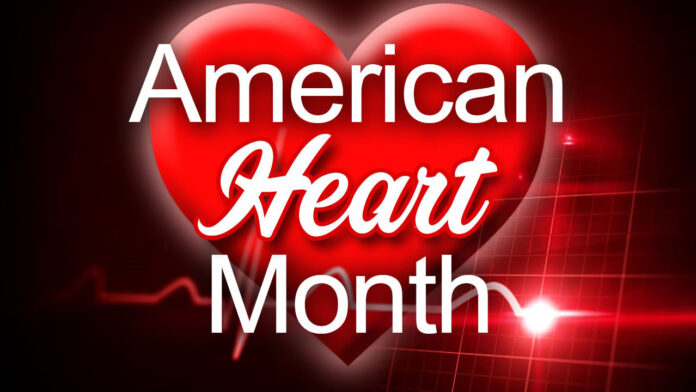By Eduardo Salinas, Special to the Star
February is here and that means Valentine’s Day is near. It is the time that couples are in search of the perfect gift for their significant other to show their love, but don’t we owe our hearts some love first? Heart disease is the leading cause of death in the United States in both men and women. The heart is one of the most important organs in the human body and learning how to take care of it should be something that becomes a routine.
This American Heart Month, let’s take a few minutes to get to know our heart and how to better care for it. Our heart takes care of pumping blood throughout our body and supplies the oxygen and nutrients our body needs while also removing carbon dioxide. According to the National Heart, Lung, and Blood Institute (NHLBI), your heart is about the size of your fist and is made up of multiple layers of tissue. If a cardiovascular disease (CVD) were to occur to the heart, it would not be able to function properly and other organs in our body will not receive the correct amount of blood needed. Simple changes like adding less salt to your food, getting some exercise and quitting unhealthy habits can improve your heart’s health.
Quitting an unhealthy habit such as smoking can be a tough journey, but if you were thinking of quitting cigarettes, the time is now. Smoking tobacco only increases the chances for CVD. The American Heart Association states that CVD accounts for about 800,000 U.S. deaths every year. This means CVD is the leading cause of deaths in the United States. According to the U.S. Department of Health and Human Services (USDHHS), almost 20 percent of those deaths happen because of cigarette smoking. Keeping this in mind, the best way to protect your heart is by staying away from smoking. The earlier you quit, the better it will be for your heart and your health in general.
The Centers for Disease Control and Prevention (CDC) states that even if you are a long-time smoker, you can see rapid health improvements when quitting. The USDHHS reports that just twenty minutes after you quit smoking, your heart rate drops; 12 hours after quitting,
carbon monoxide in the blood drops to normal levels allowing more oxygen to get to vital organs like your heart. There are so many toxic chemicals in cigarette smoke that get in the way of our organs and body working properly and efficiently, that is why the best way to save our hearts is to avoid smoking.
The 2018 Texas School Survey of Drug and Alcohol Use measures student responses to substance use. When asked about the dangers of substances, 61.2 percent of students grades 7 to 12 think there is a perceived risk of harm when using tobacco products. In region 11, which consists of 19 counties including Hidalgo, Cameron, Nueces and Kleberg, 65.7 percent of students grades 7 to 12 identify tobacco as very dangerous.
Take the first step towards a healthier lifestyle and a happy heart today! Remember that heart diseases may be prevented by making healthy choices and managing any and all of your cardiovascular problems. Consult with your doctor for all questions and recommendations towards achieving your goals. Love should be in the air, not smoke. You owe it to your heart!
The Prevention Resource Center (PRC), a program of Behavioral Health Solutions of South Texas, serves as the central data collection repository for region 11 and the developer of a yearly Regional Needs Assessment (RNA), which is available to community members at no cost and can be downloaded on our website: www.prc11.org/data. PRC wants to ensure that our communities are taking preventative steps when it comes to substance abuse. If you are interested in becoming a part of this project and would like to play a role in the 2020 Regional Needs Assessment process or would like data presentations and more, please contact Eduardo Salinas, PRC Public Relations Coordinator, at (956) 787-7111 ext. 243 or Karen Rodriguez, PRC Data Coordinator, at (956) 787-7111 ext. 245.
Eduardo Salinas is the Public Relations Coordinator for Behavioral Health Solutions of South Texas.




